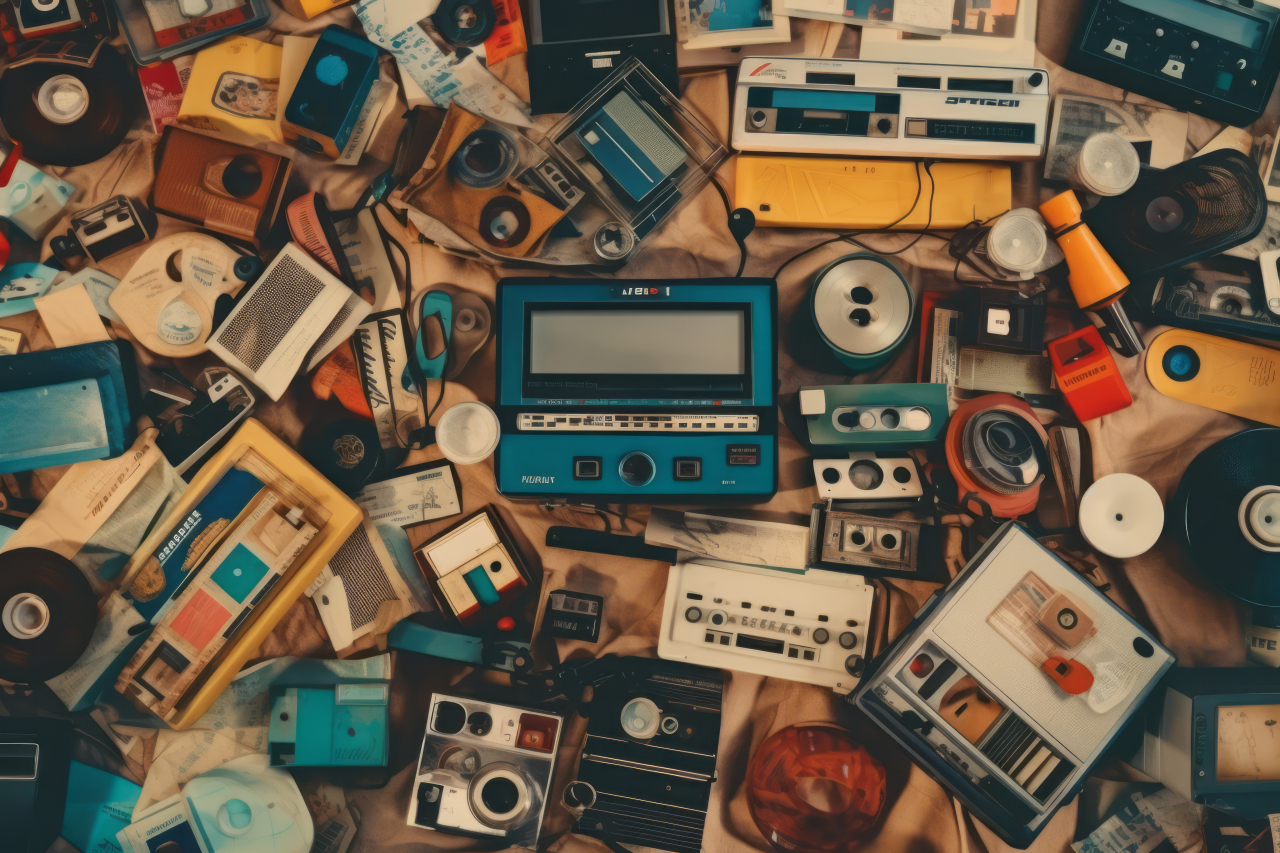
By Winter Choi
Visit the trendiest places and you’ll be bound to see them: turntables flanked by 33’s, album art on the wall, maybe even a ghettoblaster if you’re lucky. Retro audio formats have enjoyed a comeback in recent years. And with people spending more time at home during the pandemic – and spending more money on goods than experiences – sales are higher than ever. But are people buying physical formats for the music, or only to display them on a shelf?
Classic audio formats aren't merely ornaments to accessorize our lives. Rather, they have unique, intrinsic merits that can’t be found elsewhere. Records may dominate the discussion these days, but I prefer cassettes for their portability and sound texture.(Cassettes have a poor reputation they don’t deserve: They can sound otherworldly when played on quality equipment.)
Tapes promote the appreciation of whole albums because a) commercial pre-recorded tapes are sold in full albums, and b) on cassettes, skipping tracks is time-consuming and inconvenient. Many people see that as a nuisance, but it gets you to listen to albums from start to finish and notice things like the order and variety of the tracks, as well as how they complement each other to create a vibe.
With digital music, which for most of us lives on our phones, there are too many distractions. Notifications are engineered to grab us like quicksand. The track skip function – while useful in many cases – causes us to constantly gauge whether the song we’re currently listening to is good enough not to skip. And then there's the phone itself, which lets us play music and run other apps simultaneously. What does a cassette player do other than play tapes? Nothing. Simply sit back, relax, and enjoy the music.
Physical formats make us value our music more because of their exclusivity and finiteness. Firstly, factories can only press so many albums. For example, Ben Sasario at the New York Times says “the vinyl bonanza has exceeded the industrial capacity needed to sustain it,” which led to “production logjams.” On top of that, we can only afford and store so many physical albums. They can even break if neglected. That fragility and rarity makes our music more precious. But with digital, it’s the opposite. There's no ceiling on how much of it we can have, and that overabundance makes us take our music for granted.
Recent trends that fetishize vintage audio formats have helped shoot them to celebrity. But while it’s good that they were saved from extinction, the excessive emphasis on their aesthetics is distorting their inherent qualities. The next time you encounter a piece of audio history, acknowledge that there’s more to it than its tarnished metal and chipped elegant wood grain.
And don’t take a photo of it for your Instagram.
Winter Choi is CEO of Axiom International and a staff writer for US online self-help publication Better Humans. The views expressed in this column are his own. -- Ed.
-
Articles by Korea Herald












![[Kim So-hyun] The quiet taxi driver from Paris](http://res.heraldm.com/phpwas/restmb_idxmake.php?idx=644&simg=/content/image/2024/04/25/20240425050891_0.jpg&u=)







